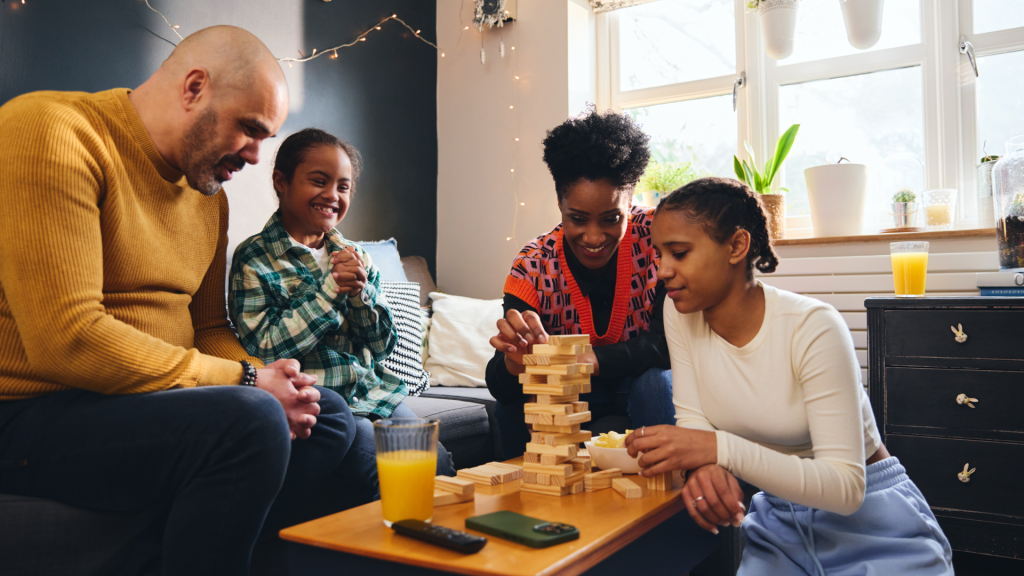
You often learn a lot about yourself when you go through a challenging life experience. You learn how you react to and handle stress, for one thing. You also discover how resilient you are, and how well you adapt when facing life’s adversities.
The same is true for the family unit. How families communicate, how they are structured, and what belief systems guide them are all factors in how well they meet and overcome difficult situations. There are a variety of ways that families can build resilience before these challenges arise. Family bonding can prepare people for inevitable circumstances that will test their strength.

Teaching and modeling clear, consistent communication is part of family bonding. When one member is experiencing difficulty, the others are aware and can demonstrate support and caring.
The other important component of communication is emotional expression. When emotions are acknowledged and accepted, children can learn to regulate them. When people are open and honest about their own emotions, no one needs to guess what the other might be feeling, or mistrust the emotions they are demonstrating. Creating trust and confidence in each other is a sure way of building resilience.
The more you put into a relationship, the more you get out of it. Families that spend quality time together develop lasting bonds that will see them through the toughest moments. Engage in activities that promote family bonding. Make time for those activities every week.
Setting aside time for family bonding with individual members should also be a priority. One-on-one conversations, a quick hug and affirmation, and even a movie date or shopping trip build strong, trusting connections among family members.
Creating rituals that only your family knows about creates bonds that last a lifetime. They can be complicated and lavish for sure, but they can also be as simple as a heart-shaped pancake every time someone has a birthday. Kids who participate in family rituals tend to be better at handling stress and feel a strong sense of security.
Along with family rituals is the importance of family stories. Handing down family traditions and history provides children with self-esteem and a sense of connection.
Every family member should feel as though they have an indispensable role. When you point out how each one contributes (even when contributing grudgingly sometimes), you underline the value of each person. When someone feels as though their presence matters, they realize that they are capable of overcoming challenges.
Modeling how to be grateful helps children develop their own sense of gratitude, and it is well-documented that gratitude fosters resilience and joy.
It’s important to know when to ask for help. And we all need a little extra support during life’s most challenging moments. It can help to talk to others who have been down the same path. Other Parents Like Me knows how to support families whose children struggle with mental health and substance use issues. Sign up today and get the support you need to help them on their recovery journey.
Need Help Now: Let us point you in the direction of other resources. If this is an emergency, please call 911.
If you or a loved one is in emotional distress or suicidal crisis, call 988.